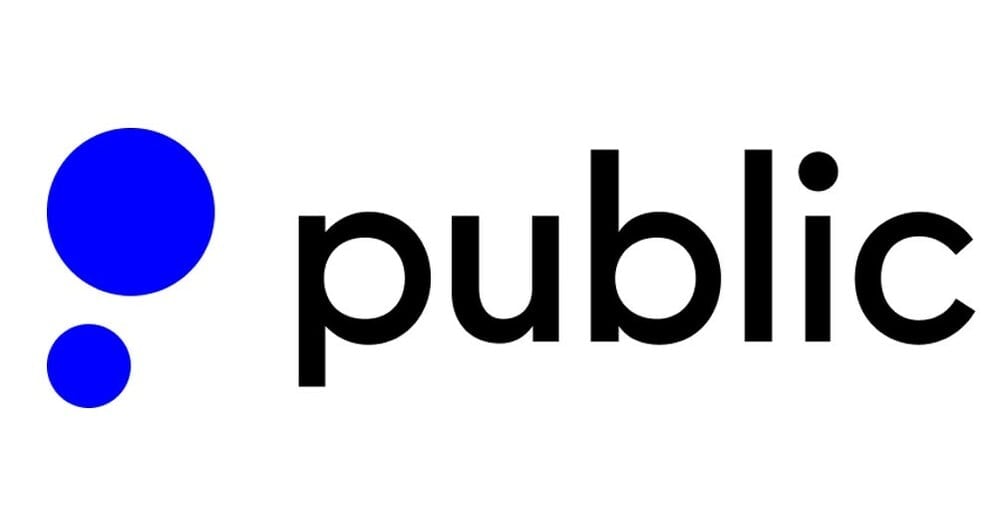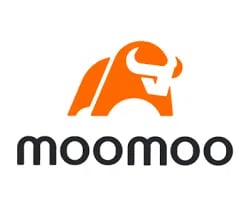7 Best Brokerage Accounts for High Interest Rates: Up to 3.35%
+ 1 more
Many or all of the products on this page are from partners who compensate us when you click to or take an action on their website, but this does not influence our evaluations or ratings. Our opinions are our own.
The investing information provided on this page is for educational purposes only. NerdWallet, Inc. does not offer advisory or brokerage services, nor does it recommend or advise investors to buy or sell particular stocks, securities or other investments.
Why trust NerdWallet
Our deep, independent analysis of brokers sorts through key account details to find and evaluate the information investors want when choosing a brokerage firm. To see our full methodology and learn more about our process, read our criteria for evaluating brokers and for evaluating robo-advisors.
Over 60 investment account providers reviewed and rated by our expert Nerds.
More than 50 years of combined experience writing about finance and investing.
Hands-on testing of the account funding process, broker websites and stock-trading platforms.
Dozens of objective ratings rubrics, and strict guidelines to maintain editorial integrity.
If you keep some cash in your brokerage account, it's a nice perk when that cash is earning a high interest rate. These brokers made our list of the best options for earning interest on uninvested cash:
Moomoo: 3.35%
Vanguard: 3.35%
Fidelity: 3.33%
Public: 3.30%
M1: 3.10%
Webull: 3.35% with $40 annual premium subscription
Robinhood: 3.25% with $50 annual Gold fee
A brokerage account's interest rate isn't the only thing you should consider when opening an account. You may want to look at its investment minimum, fees, available investments, educational resources and customer service as well. Below, we've written a short overview of each broker, including pros, cons and features that stand out.
Best Brokerage Accounts for High Interest Rates: Up to 3.35%
| Broker | NerdWallet rating | Fees | Account minimum | Promotion | Learn more |
|---|---|---|---|---|---|
5.0/5 | $0 per trade for online U.S. stocks and ETFs | $0 | None no promotion available at this time | Learn moreon partner's site on Fidelity's website | |
4.5/5 | $0 on trades of stocks, ETFs and their options. Other fees may apply. | $0 | 1 Free Stock after linking your bank account (stock value range $5.00-$200) | Learn moreon partner's site on Robinhood's website | |
5.0/5 | $0 per trade | $0 | Up to 4% match (up to $2M) when you open and fund an account with Webull | Learn moreon partner's site on Webull's website | |
4.4/5 | $0 | $0 | Earn a 1% uncapped match when you transfer your investment portfolio to Public. | Learn moreon partner's site on Public's website | |
4.2/5 | $0 per trade | $0 | None no promotion available at this time | ||
4.1/5 | $0 | $0 | Earn 8.1% APY on your uninvested cash for 3 months + up to 60 Free Stocks with qualified deposits. Terms & Conditions apply. | ||
3.9/5 | $0 | $100 | Get up to $500 in your new Brokerage Account when you sign up and make a deposit within 14 days. Plus, earn up to $10,000 to invest when you transfer your brokerage account to M1 within 30 days of opening an M1 account. |
- Learn moreon partner's siteon Fidelity's websiteNerdWallet rating5.0/5Learn moreon partner's siteon Fidelity's website
Fees
$0
per trade for online U.S. stocks and ETFs
Account minimum
$0
Promotion
None
no promotion available at this time
Our Take
ProsCommission-free stock, options and ETF online US trades.
Large selection of research providers.
Strong customer service.
Expense-ratio-free index funds.
Highly rated mobile app.
High interest rate on uninvested cash.
ConsRelatively high broker-assisted trade fee.
Why We Like It2026 Best-of Award winner: Fidelity is NerdWallet's pick for the best online broker for beginning investors and the best app for investing. Fidelity is one of the largest and most well-established brokerages, and it shows. Fidelity charges no trading commissions, offers an extensive set of no-fee, no-minimum index funds. It also stands out for its top-notch research tools, a renowned trading platform and very strong customer service.
- Learn moreon partner's siteon Robinhood's websiteNerdWallet rating4.5/5Learn moreon partner's siteon Robinhood's website
Fees
$0
on trades of stocks, ETFs and their options. Other fees may apply.
Account minimum
$0
Promotion
1 Free Stock
after linking your bank account (stock value range $5.00-$200)
Our Take
ProsTrades of stocks, ETFs and their options are commission free. Other fees may apply.
Streamlined interface.
Cryptocurrency trading.
IRA with 1% match (3% for Gold members).
High interest rate on uninvested cash.
ConsNo mutual funds.
Little third-party research.
Why We Like ItFree stock, options, ETF and crypto trades and a 1% match on IRAs.
- Learn moreon partner's siteon Webull's websiteNerdWallet rating5.0/5Learn moreon partner's siteon Webull's website
Fees
$0
per trade
Account minimum
$0
Promotion
Up to 4% match (up to $2M)
when you open and fund an account with Webull
Our Take
ProsCommission-free stock, options and ETF trades.
Easy-to-use platform.
Advanced tools.
High interest rate on uninvested cash.
High order execution quality.
ConsNo mutual funds.
Why We Like ItSuper slick interface for desktop and mobile apps, but also a strong suite of tools for active traders.
- Learn moreon partner's siteon Public's websiteNerdWallet rating4.4/5Learn moreon partner's siteon Public's website
Fees
$0
Account minimum
$0
Promotion
Earn a 1% uncapped match
when you transfer your investment portfolio to Public.
Our Take
ProsCommission-free stock, options and ETF trades.
Rebates for trading options.
Easy-to-use signup and trading interface.
High interest rate on uninvested cash.
ConsNo mutual funds.
Lack of tools (e.g. customizable investment screeners).
Why We Like ItPublic provides free stock and ETF trades, pays you to trade options, and gives traders access to crypto and bonds, as well as a high-yield cash account. The platform will appeal to traders looking for a low-cost options broker and access to many types of assets.
- NerdWallet rating4.2/5
Fees
$0
per trade
Account minimum
$0
Promotion
None
no promotion available at this time
Our Take
ProsCommission-free stock, options and ETF trades.
Leader in low-cost mutual, index and exchange-traded funds.
High interest rate on uninvested cash.
High order execution quality.
ConsBasic trading platform only.
Limited research and data.
No fractional shares for stocks.
Why We Like ItVanguard is the king of low-cost investing, making it ideal for buy-and-hold and retirement investors. It offers a top-notch selection of proprietary, low-cost mutual funds, including many ESG options. Despite its $0 trade commission, active traders will find the broker falls short due to the lack of a strong trading platform.
- NerdWallet rating4.1/5
Fees
$0
Account minimum
$0
Promotion
Earn 8.1% APY
on your uninvested cash for 3 months + up to 60 Free Stocks with qualified deposits. Terms & Conditions apply.
Our Take
ProsCommission-free stock, ETF and options trades.
No contract fee on equity options.
Popular, easy-to-use app.
High yield on uninvested cash.
Low margin rates.
ConsNo mutual funds or bonds.
Lower than average execution quality.
Why We Like ItMoomoo offers free stock and option trades in an easy-to-use trading platform that charges low margin rates. It's not built for passive retirement investors — IRAs aren't supported, nor are mutual funds — but there's a lot to like about Moomoo for more active traders.
- NerdWallet rating3.9/5
Fees
$0
Account minimum
$100
Promotion
Get up to $500
in your new Brokerage Account when you sign up and make a deposit within 14 days. Plus, earn up to $10,000 to invest when you transfer your brokerage account to M1 within 30 days of opening an M1 account.
Our Take
ProsCommission-free trades for stocks and ETFs.
Highly rated mobile app.
Dynamic Rebalancing feature ensures cash moving in and out of the portfolio helps maintain target percentages of each investment “Slice.”
High interest rate on uninvested cash.
ConsRestricted trading windows.
Limited educational sources.
No options trading.
Why We Like ItM1 Finance stands out for its unique investment approach — it helps investors visualize their portfolios as a pie, with "slices" made up of different securities. The mix of automation and manual investing will appeal to beginner investors who want to grow their skills and long-term investors who want help maintaining their portfolio allocation.
Brokerage accounts vs. bank accounts for earning interest
While these brokers pay interest similar to what you'd receive in a savings account, there are a number of differences to be aware of, including deposit insurance and features.
Deposit insurance
Savings accounts are insured by the Federal Deposit Insurance Corp. (FDIC), which protects up to $250,000 per person, per bank.
All of the brokerages above are members of the Securities Investor Protection Corp. (SIPC), which protects up to $500,000 per person (up to $250,000 in cash), per brokerage account in the event that the broker becomes insolvent.
However, SIPC coverage doesn't protect the value of money market funds, such as those that Vanguard sweep funds into by default. In other words, SIPC coverage doesn't necessarily cover the exact dollar amount of cash in a brokerage account the way FDIC coverage does in a savings account.
Is a brokerage account a good place to earn interest?
Bill Hampton, a financial consultant based in Atlanta, says that brokerage accounts can be good places to earn interest — for savers who don’t need immediate access to their money.
However, Hampton says that some brokerage accounts have limitations. “For instance, some do not offer the ability to write checks like a bank would. Some limit the amount of transactions you can make in a particular month,” Hampton says.
“A client would have to determine if it’s a long-term savings account that they’re not going to touch for six months or a year, or if it’s going to be an emergency fund that they don’t plan to utilize. If it’s going to be their regular account that they move cash in and out of, they may want to check with the restrictions that each brokerage firm has,” Hampton says.
He points out that many accounts are limited to six transactions per month, which is “plenty in most cases.”
Hampton says that despite these limitations, brokerage accounts can still be a viable option for savers who are seeking high yields and don’t need to touch their money several times a week.
“If individuals or clients can find better rates at a brokerage firm than at their local bank, which is most likely, then that’s a very good opportunity to earn a high interest rate,” he says.
Last updated on February 2, 2026
Methodology
NerdWallet’s comprehensive review process evaluates and ranks the largest U.S. brokerage firms by assets under management, along with emerging industry players. Our aim is to provide an independent assessment of providers to help arm you with information to make sound, informed judgements on which ones will best meet your needs. We adhere to strict guidelines for editorial integrity.
We collect data directly from providers through detailed questionnaires, and conduct first-hand testing and observation through provider demonstrations. The questionnaire answers, combined with demonstrations, interviews of personnel at the providers and our specialists’ hands-on research, fuel our proprietary assessment process that scores each provider’s performance across more than 20 factors. The final output produces star ratings from poor (one star) to excellent (five stars).
For more details about the categories considered when rating brokers and our process, read our full methodology.







